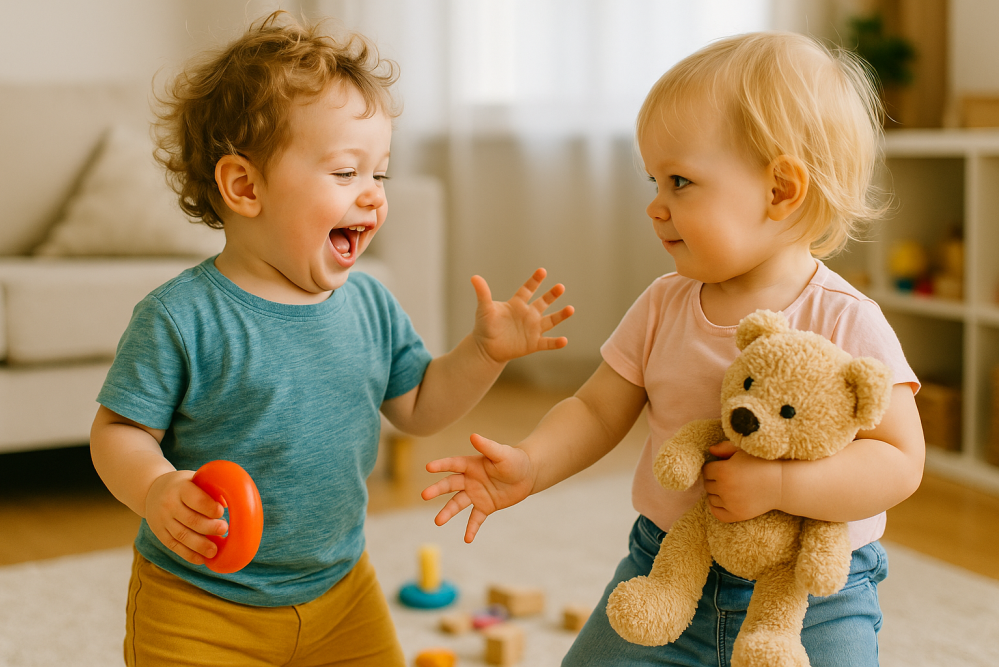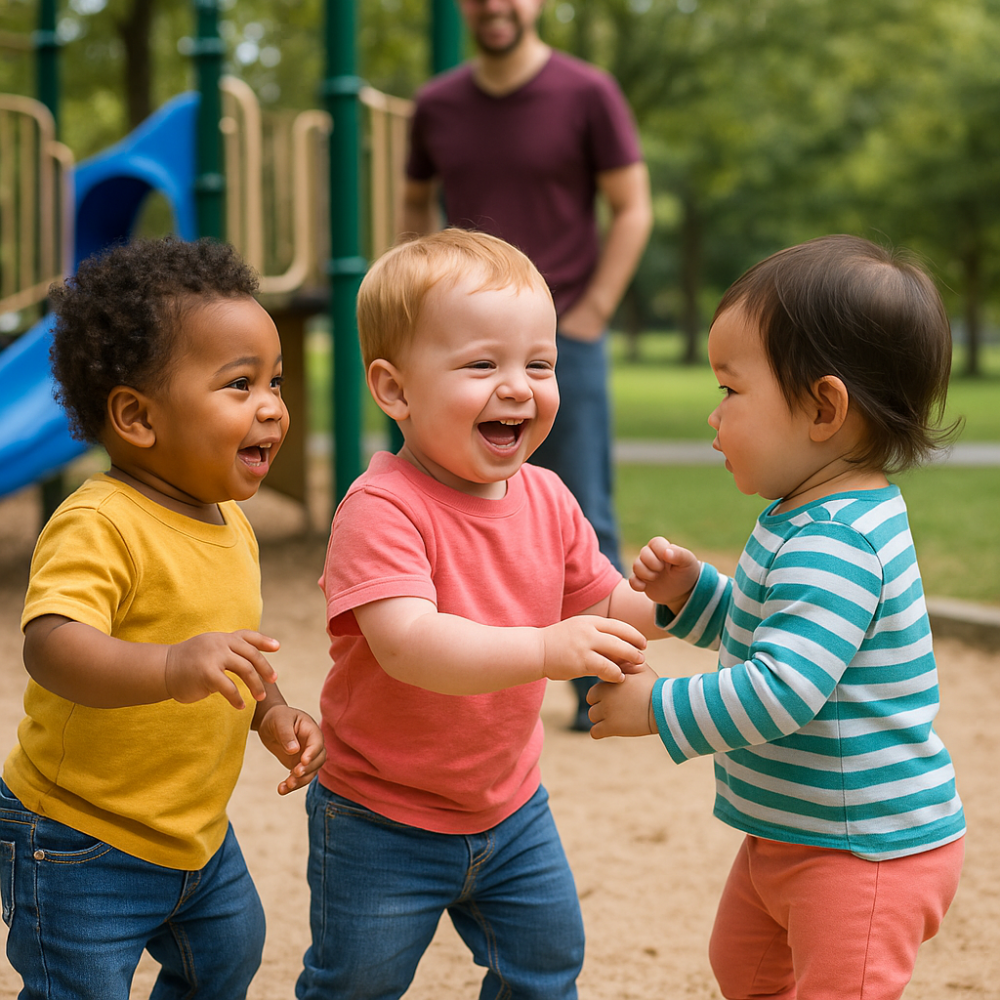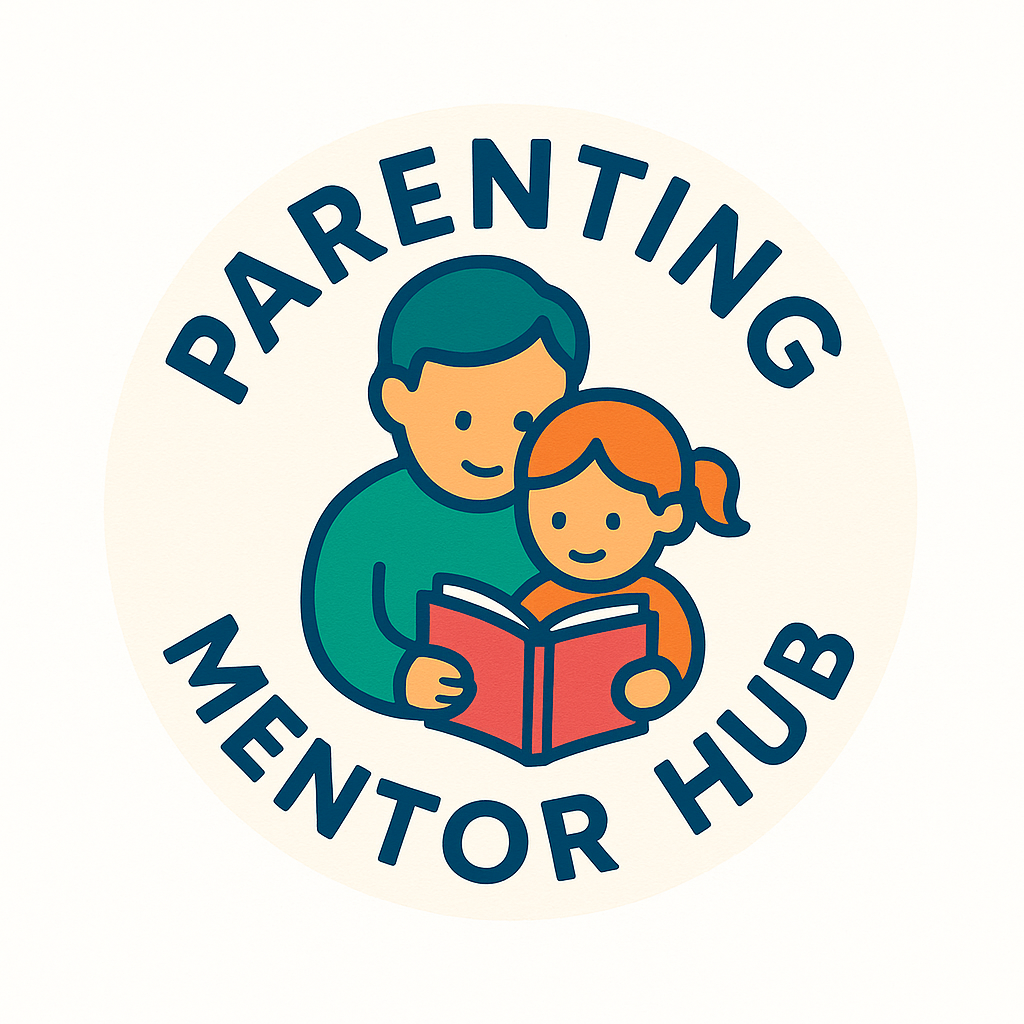
Helping toddlers learn to make friends is one of the most meaningful – and sometimes underestimated – parts of parenting. Those first shy moments of connection, the sharing of a toy, or a game of chase around the garden, can blossom into genuine friendships. For many parents, however, supporting these early steps in social development can feel a bit daunting.
This guide offers calm, practical advice to help you navigate toddler playdates and early friendships in a way that’s relaxed, encouraging, and realistic.
Why Socialisation Matters for Toddlers
Socialisation in the toddler years goes far beyond simply playing together. It helps shape how children think, communicate, and regulate their emotions. When toddlers spend time with others, you may notice new words and phrases entering their vocabulary. They are often picked up during a single afternoon at the playground.
Shared play offers countless mini-lessons: managing frustration when something doesn’t go their way, taking turns with a toy, or noticing how another child is feeling. These early experiences help build emotional resilience, empathy, and patience – skills that form the foundation for healthy relationships later on.
Being around peers also helps children adapt to new settings and people, making future transitions like starting nursery or preschool that little bit easier.
What Social Play Looks Like in Toddlers Aged 1–3
Between the ages of one and three, children typically move from parallel play (playing alongside others without interaction) to short moments of cooperation and shared activity. You might see a toddler handing another child a toy, copying their movements, or joining a short game of chase.
This period is filled with variety. Some toddlers are enthusiastic and outgoing; others hang back, watch quietly, or cling to their parent’s leg. All of this is completely normal. Social development doesn’t follow a script, and allowing children to move at their own pace helps them feel secure and confident in group settings.
Is Your Toddler Ready for Playdates?
Readiness for more social play often shows up in subtle ways. If your toddler begins to show interest in other children – perhaps following them at the park, babbling toward them, or mimicking their actions – they may be ready for a gentle introduction to playdates.
“Ready” doesn’t mean perfectly sociable or always willing to share. The early stages of friendship are full of stumbles, hesitations, and sometimes tears. You might want to start with short, one-on-one playdates in a familiar setting and gradually expand from there.
Explaining Friendship in Simple Terms
Toddlers understand the world best through concrete examples. You might say, “Did you see how Jamie shared his toy with you? That was kind. That’s what friends do.” Picture books and pretend play also help bring the idea of friendship to life.
As children begin to talk about others they like spending time with – nursery classmates, cousins, or neighbours – you can gently introduce language like, “A friend is someone who plays with you, listens, and shares things with you.” Even very young children begin to absorb the building blocks of friendship this way.
First Playdate Ideas That Work
When arranging your first few playdates, it helps to keep things simple and low-key. Meeting at home, where toddlers are surrounded by familiar toys and snacks, can offer a sense of comfort. Keep playdates short – just 30 to 45 minutes is often enough.
Parks are another great option, especially for children who need room to move without too many demands. Parent-and-child groups, like music sessions or rhyme time at the library, provide a structured activity and a natural point of connection.
Activities like chalk drawing, bubbles, or building towers with blocks allow toddlers to play side by side without the pressure to constantly interact.

What to Expect During Toddler Playdates
Playdates at this age often involve brief bursts of interaction followed by periods of solo play. Moments of copying each other, giggling, or handing over a toy are all signs of growing interest in social connection – even if they don’t last long.
Sharing and turn-taking are still very new skills. Rather than expecting perfect manners, the focus is on gently helping toddlers notice others’ feelings and actions. Quietly narrating what’s happening – “Emma’s using the truck now; you can have a turn next” – can help toddlers make sense of the social world around them.
Supporting Without Hovering
Supervising toddler play often means staying nearby without overmanaging. Being close enough to guide, set boundaries, or step in when needed helps toddlers feel supported. But they also benefit from having the space to try things on their own.
If one child becomes upset or overwhelmed, suggesting a new activity or redirecting them can prevent frustration from escalating. As children gain confidence, you’ll likely find yourself stepping back more and more, offering only gentle guidance.
Conversation Starters and Simple Social Games
Pretend play is a wonderful way to introduce social concepts. Playing shop, tea parties, or role-playing with teddies and dolls (“Teddy’s sad – how can we help him?”) gives toddlers a chance to practise empathy and communication in a lighthearted way.
You can also gently encourage interaction by suggesting, “Could you show Jack how to stack the blocks?” or “Let’s give a cup to everyone at the tea party.” These small nudges help toddlers learn how to invite others into play.
Managing Sharing and Tantrums
Toy-related conflict is common, and it doesn’t mean a playdate is going badly. Having duplicates of favourite toys or putting a few out of sight before the playdate can reduce tension.
If disagreements arise, stay calm and use simple language: “You’re both upset, but we don’t grab. Let’s take turns.” Your steady tone helps model how to respond in emotionally charged moments. A quick snack, a quiet moment with a parent, or a short walk around the garden can reset the mood if things become too intense.
When Things Don’t Go to Plan
Not every playdate is a success – and that’s perfectly okay. If your child seems overwhelmed or reluctant to engage, it’s fine to cut things short and try again another day.
Later, a brief conversation about what happened (“It was hard to share today. We can practise again soon”) helps your child reflect without shame. Sometimes meeting a more familiar child, or changing the location, makes all the difference next time.
The Hidden Benefit: Playdates for Parents
Playdates aren’t just good for toddlers. For many parents – especially those spending long stretches at home – it’s a chance to connect with another adult, swap stories, and feel a little less alone. Watching your child build relationships while you chat with someone who understands the same stage of life can be quietly restorative. It’s not always easy to find that kind of connection, and playdates often open that door.
Reaching Out: Inviting Another Parent for a Playdate
Not all toddlers struggle with making friends. Sometimes it’s the parents who feel unsure about how to take that first social step.
Inviting another parent and child over can make you feel surprisingly vulnerable. You might worry about whether your home is “nice enough,” whether you’ll run out of things to talk about, or whether the other parent might say no. These feelings are more common than most people admit.
Here’s a gentle reminder: most parents are just looking for connection too. They’re not judging your decor, or your garden, or your choice of biscuits. If your child enjoys playing with theirs at nursery, the playground, or toddler group, that’s often enough of an opening. A simple invitation like:
“They seem to get on really well – would you like to come over for a cup of tea and a short play sometime?”
…can be all it takes to open the door.
If you’re nervous, you might try meeting at a park first, or arranging a shared outing (like the library or soft play), which gives the children time to connect while the parents ease into conversation naturally.
And if someone says no, it’s not a rejection of you or your child. Parents say no for all sorts of reasons. Try again with someone else when you’re ready. Every playdate that does work builds your confidence for the next one.
Encouraging Social Growth Outside of Playdates
Social skills don’t only develop during planned meetups. Everyday moments – waving at a neighbour, saying “thank you” at the shop, or chatting with another child at the park – offer valuable practice in being kind, confident, and respectful.
Group activities like library story time or toddler music sessions offer opportunities to be around others without the pressure of constant interaction. These small exposures help build confidence over time.
Modelling Friendship at Home
Children often imitate what they see. Narrating kind gestures at home (“I’m helping Daddy wash up because we’re a team”) or involving siblings in small acts of fairness – like taking turns or sharing snacks – helps toddlers absorb the idea that friendship is about cooperation and kindness.
Every child has their own social style. With encouragement, patience, and gentle opportunities to practise, toddlers begin to develop the emotional tools they’ll carry into school and beyond. Even the quietest beginnings – two children stacking blocks side by side – can be the start of something special.
